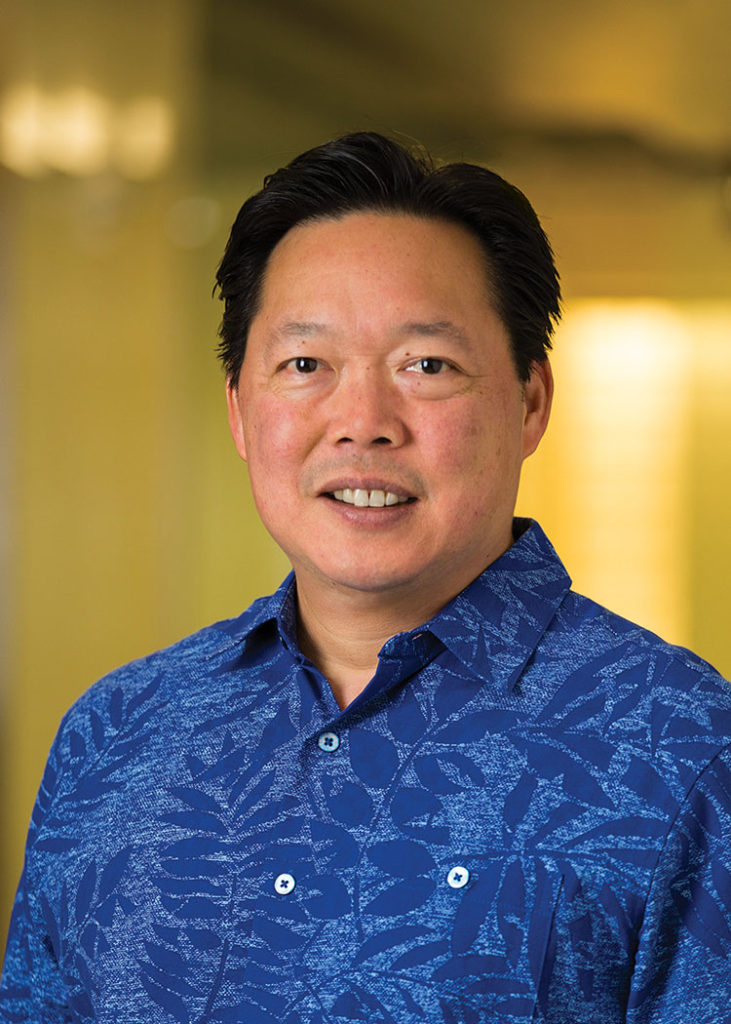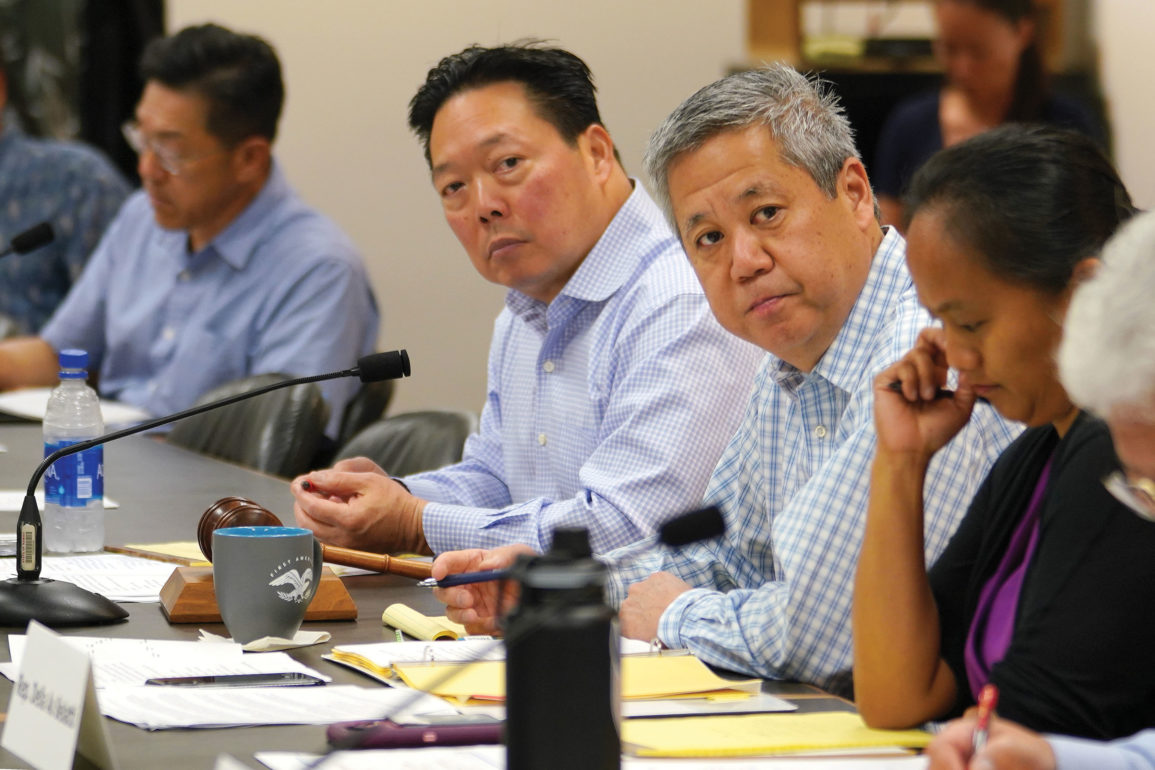At the 2018 Hawai‘i Executive Conference, an annual gathering of the State’s CEOs and other movers and shakers, Peter Ho ’83 took the stage to present startling findings from an Aloha United Way report revealing that 48% of Hawai‘i’s residents are financially vulnerable – either already facing poverty, or not earning enough to cover basic needs.
The chairman, president and CEO of Bank of Hawaii heeded an urgent call to action, saying leaders should be alarmed and need to work collectively to change the trajectory. Ultimately, after hearing messages like Ho’s, several of the high-powered attendees committed to what became the Hawai‘i Executive Collaborative (HEC), a nonprofit organization with a mission to address the community’s toughest challenges.
Ho has remained an active presence with the collaborative and on the State of Hawai‘i’s COVID-19 Economic and Financial Preparedness committee. He also is chairman of the Hawai‘i Community Foundation board, and has taken on numerous other community-driven roles. It’s not a stretch to say he’s become the State’s most vocal and visible leader to not just sound the sirens about Hawai‘i’s fragile economy but to spearhead solutions.
The pandemic has made it all too clear why this is necessary.

The Bank of Hawaii Foundation released findings in July about the economic impact of COVID-19 in the Islands, including that 45% of those surveyed have seen their household income decline since the pandemic began. “I don’t think it would be overly dramatic to say that we may be in an environment right now where few other challenging environments could compare,” Ho said. “My responsibility as a community member is to participate and try to be helpful. And the bank has been here for almost 125 years, and we do have an obligation to take the leadership role in our community because of all the great things the community provided for us over the years.”
While peers might question the prudence of Ho leaning so heavily into these potentially contentious issues, he says there’s no time to worry about being careful, with so many Hawai‘i families struggling, even prior to the coronavirus. “The pandemic has dramatically exacerbated the challenges we already knew we had,” he said. Although the prospects of a vaccine are bright, Ho believes the world will be grappling with the virus for an extended period of time – and that it could very well turn into a chronic issue that won’t resolve by just waiting for things to go back to normal.
Here in Hawai‘i, the elephant lurking remains our heavy reliance on the visitor industry, which essentially collapsed after the coronavirus appeared. Ho says it’s imperative for local leaders to devise new solutions, which include diversifying the economy, but even more fundamentally, working to bring down Hawai‘i’s unsustainable cost of living and improving education for everyone. “I agree that diversifying the economy is a big deliverable, but I wouldn’t even place that at the top our primary deliverables,” he said.
The deeper issue is our wide income disparity in the Islands, and how toxic that has become on many levels. “I think we need to stare that stone sober in the eye and decide as a community whether that’s acceptable,” he said. “Certainly, I don’t think it is. It’s a moral and ethical issue, but also an economic issue.”
If not tackled, more of our residents will flee the Islands, which will be cause further detriment to the economy, he added. Until we start to create more parity in opportunity and outcome – economically and in education – we’re going to have challenges, he said. “I’m not saying the visitor industry needs to go away. We just need to make sure the visitor industry is more durable, and to ensure a quality relationship with the military, which is another big and somewhat controversial business here in the Islands. We also need to reconcile with the spiritual and commercial aspects of sacred places like Maunakea, and get better education outcomes for everyone. Unless we get our arms around those things, we face a tough economic reality.”
Ho says it’s incumbent for a school like Punahou, and its talented graduates, to accept responsibility and assume leadership to achieve such goals, which is how healthy communities operate and become sustainable.
Still, in reflection, with all the challenges of COVID-19 swirling, it’s important to acknowledge the positives – to see the situation not just as a crisis, but as a chance to create a new world, Ho said. “There’s a lot of opportunity for all of us here, but it’s going to require leadership. It’s going to be a matter of demanding change, not just of our political leaders, but change in how our business community operates; how it contributes to the community; how our citizenry chooses to exercise their voice politically; and how effectively we can turn both the downsides and upsides into a common vision.”

